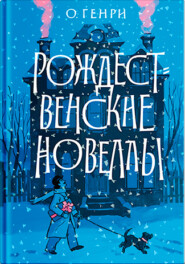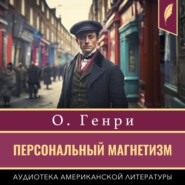По всем вопросам обращайтесь на: info@litportal.ru
(©) 2003-2024.
✖
The Gentle Grafter
Настройки чтения
Размер шрифта
Высота строк
Поля
"'I learned there that you are the owner of an Egyptian ivory carving of the time of Rameses II., representing the head of Queen Isis in a lotus flower. There were only two of such carvings made. One has been lost for many years. I recently discovered and purchased the other in a pawn – in an obscure museum in Vienna. I wish to purchase yours. Name your price.'
"'Well, the great ice jams, Profess!' says Scudder. 'Have you found the other one? Me sell? No. I don't guess Cornelius Scudder needs to sell anything that he wants to keep. Have you got the carving with you, Profess?'
"I shows it to Scudder. He examines it careful all over.
"'It's the article,' says he. 'It's a duplicate of mine, every line and curve of it. Tell you what I'll do,' he says. 'I won't sell, but I'll buy. Give you $2,500 for yours.'
"'Since you won't sell, I will,' says I. 'Large bills, please. I'm a man of few words. I must return to New York to-night. I lecture to-morrow at the aquarium.'
"Scudder sends a check down and the hotel cashes it. He goes off with his piece of antiquity and I hurry back to Andy's hotel, according to arrangement.
"Andy is walking up and down the room looking at his watch.
"'Well?' he says.
"'Twenty-five hundred,' says I. 'Cash.'
"'We've got just eleven minutes,' says Andy, 'to catch the B. & O. westbound. Grab your baggage.'
"'What's the hurry,' says I. 'It was a square deal. And even if it was only an imitation of the original carving it'll take him some time to find it out. He seemed to be sure it was the genuine article.'
"'It was,' says Andy. 'It was his own. When I was looking at his curios yesterday he stepped out of the room for a moment and I pocketed it. Now, will you pick up your suit case and hurry?'
"'Then,' says I, 'why was that story about finding another one in the pawn – '
"'Oh,' says Andy, 'out of respect for that conscience of yours. Come on.'"
THE MAN HIGHER UP
Across our two dishes of spaghetti, in a corner of Provenzano's restaurant, Jeff Peters was explaining to me the three kinds of graft.
Every winter Jeff comes to New York to eat spaghetti, to watch the shipping in East River from the depths of his chinchilla overcoat, and to lay in a supply of Chicago-made clothing at one of the Fulton street stores. During the other three seasons he may be found further west – his range is from Spokane to Tampa. In his profession he takes a pride which he supports and defends with a serious and unique philosophy of ethics. His profession is no new one. He is an incorporated, uncapitalized, unlimited asylum for the reception of the restless and unwise dollars of his fellowmen.
In the wilderness of stone in which Jeff seeks his annual lonely holiday he is glad to palaver of his many adventures, as a boy will whistle after sundown in a wood. Wherefore, I mark on my calendar the time of his coming, and open a question of privilege at Provenzano's concerning the little wine-stained table in the corner between the rakish rubber plant and the framed palazzio della something on the wall.
"There are two kinds of graft," said Jeff, "that ought to be wiped out by law. I mean Wall Street speculation, and burglary."
"Nearly everybody will agree with you as to one of them," said I, with a laugh.
"Well, burglary ought to be wiped out, too," said Jeff; and I wondered whether the laugh had been redundant.
"About three months ago," said Jeff, "it was my privilege to become familiar with a sample of each of the aforesaid branches of illegitimate art. I was sine qua grata with a member of the housebreakers' union and one of the John D. Napoleons of finance at the same time."
"Interesting combination," said I, with a yawn. "Did I tell you I bagged a duck and a ground-squirrel at one shot last week over in the Ramapos?" I knew well how to draw Jeff's stories.
"Let me tell you first about these barnacles that clog the wheels of society by poisoning the springs of rectitude with their upas-like eye," said Jeff, with the pure gleam of the muck-raker in his own.
"As I said, three months ago I got into bad company. There are two times in a man's life when he does this – when he's dead broke, and when he's rich.
"Now and then the most legitimate business runs out of luck. It was out in Arkansas I made the wrong turn at a cross-road, and drives into this town of Peavine by mistake. It seems I had already assaulted and disfigured Peavine the spring of the year before. I had sold $600 worth of young fruit trees there – plums, cherries, peaches and pears. The Peaviners were keeping an eye on the country road and hoping I might pass that way again. I drove down Main street as far as the Crystal Palace drugstore before I realized I had committed ambush upon myself and my white horse Bill.
"The Peaviners took me by surprise and Bill by the bridle and began a conversation that wasn't entirely disassociated with the subject of fruit trees. A committee of 'em ran some trace-chains through the armholes of my vest, and escorted me through their gardens and orchards.
"Their fruit trees hadn't lived up to their labels. Most of 'em had turned out to be persimmons and dogwoods, with a grove or two of blackjacks and poplars. The only one that showed any signs of bearing anything was a fine young cottonwood that had put forth a hornet's nest and half of an old corset-cover.
"The Peaviners protracted our fruitless stroll to the edge of town. They took my watch and money on account; and they kept Bill and the wagon as hostages. They said the first time one of them dogwood trees put forth an Amsden's June peach I might come back and get my things. Then they took off the trace chains and jerked their thumbs in the direction of the Rocky Mountains; and I struck a Lewis and Clark lope for the swollen rivers and impenetrable forests.
"When I regained intellectualness I found myself walking into an unidentified town on the A., T. & S. F. railroad. The Peaviners hadn't left anything in my pockets except a plug of chewing – they wasn't after my life – and that saved it. I bit off a chunk and sits down on a pile of ties by the track to recogitate my sensations of thought and perspicacity.
"And then along comes a fast freight which slows up a little at the town; and off of it drops a black bundle that rolls for twenty yards in a cloud of dust and then gets up and begins to spit soft coal and interjections. I see it is a young man broad across the face, dressed more for Pullmans than freights, and with a cheerful kind of smile in spite of it all that made Phœbe Snow's job look like a chimney-sweep's.
"'Fall off?' says I.
"'Nunk,' says he. 'Got off. Arrived at my destination. What town is this?'
"'Haven't looked it up on the map yet,' says I. 'I got in about five minutes before you did. How does it strike you?'
"'Hard,' says he, twisting one of his arms around. 'I believe that shoulder – no, it's all right.'
"He stoops over to brush the dust off his clothes, when out of his pocket drops a fine, nine-inch burglar's steel jimmy. He picks it up and looks at me sharp, and then grins and holds out his hand.
"'Brother,' says he, 'greetings. Didn't I see you in Southern Missouri last summer selling colored sand at half-a-dollar a teaspoonful to put into lamps to keep the oil from exploding?'
"'Oil,' says I, 'never explodes. It's the gas that forms that explodes.' But I shakes hands with him, anyway.
"'My name's Bill Bassett,' says he to me, 'and if you'll call it professional pride instead of conceit, I'll inform you that you have the pleasure of meeting the best burglar that ever set a gum-shoe on ground drained by the Mississippi River.'
"Well, me and this Bill Bassett sits on the ties and exchanges brags as artists in kindred lines will do. It seems he didn't have a cent, either, and we went into close caucus. He explained why an able burglar sometimes had to travel on freights by telling me that a servant girl had played him false in Little Rock, and he was making a quick get-away.
"'It's part of my business,' says Bill Bassett, 'to play up to the ruffles when I want to make a riffle as Raffles. 'Tis loves that makes the bit go 'round. Show me a house with a swag in it and a pretty parlor-maid, and you might as well call the silver melted down and sold, and me spilling truffles and that Chateau stuff on the napkin under my chin, while the police are calling it an inside job just because the old lady's nephew teaches a Bible class. I first make an impression on the girl,' says Bill, 'and when she lets me inside I make an impression on the locks. But this one in Little Rock done me,' says he. 'She saw me taking a trolley ride with another girl, and when I came 'round on the night she was to leave the door open for me it was fast. And I had keys made for the doors upstairs. But, no sir. She had sure cut off my locks. She was a Delilah,' says Bill Bassett.
"It seems that Bill tried to break in anyhow with his jimmy, but the girl emitted a succession of bravura noises like the top-riders of a tally-ho, and Bill had to take all the hurdles between there and the depot. As he had no baggage they tried hard to check his departure, but he made a train that was just pulling out.
"'Well,' says Bill Bassett, when we had exchanged memories of our dead lives, 'I could eat. This town don't look like it was kept under a Yale lock. Suppose we commit some mild atrocity that will bring in temporary expense money. I don't suppose you've brought along any hair tonic or rolled gold watch-chains, or similar law-defying swindles that you could sell on the plaza to the pikers of the paretic populace, have you?'
"'No,' says I, 'I left an elegant line of Patagonian diamond earrings and rainy-day sunbursts in my valise at Peavine. But they're to stay there until some of those black-gum trees begin to glut the market with yellow clings and Japanese plums. I reckon we can't count on them unless we take Luther Burbank in for a partner.'
"'Very well,' says Bassett, 'we'll do the best we can. Maybe after dark I'll borrow a hairpin from some lady, and open the Farmers and Drovers Marine Bank with it.'
"While we were talking, up pulls a passenger train to the depot near by. A person in a high hat gets off on the wrong side of the train and comes tripping down the track towards us. He was a little, fat man with a big nose and rat's eyes, but dressed expensive, and carrying a hand-satchel careful, as if it had eggs or railroads bonds in it. He passes by us and keeps on down the track, not appearing to notice the town.
"'Come on,' says Bill Bassett to me, starting after him.
"'Where?' I asks.
"'Lordy!' says Bill, 'had you forgot you was in the desert? Didn't you see Colonel Manna drop down right before your eyes? Don't you hear the rustling of General Raven's wings? I'm surprised at you, Elijah.'
"We overtook the stranger in the edge of some woods, and, as it was after sun-down and in a quiet place, nobody saw us stop him. Bill takes the silk hat off the man's head and brushes it with his sleeve and puts it back.

















